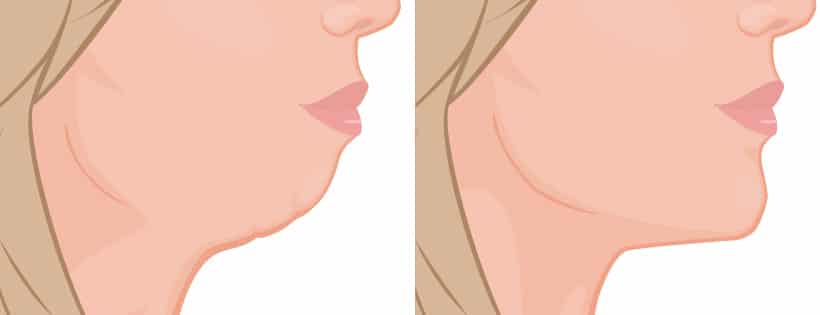Post-Operative Instructions for Breast Lift
Night Of Chin Implant Surgery
- Movement is Important: Make sure you are up and walking around immediately after surgery. When lying down in bed or on the couch, make sure you are moving your legs and ankles. Take deep breaths frequently to keep your lungs clear.
- Talking: Talking should be minimized. Excessive talking, laughing, and chewing will cause more swelling and discomfort.
- Sleep: Sleep on your back with your head elevated about 30-40 degrees (2-3 pillows). Do not sleep on your side. Keeping your body more upright will minimize swelling. Continue this for one to two weeks.
- Dressing: You will have a piece of brown tape covering the incision after surgery. The tape is to remain in place until your next follow-up visit with our specialist after surgery.
Medications After Chin Implant Surgery
- Pain: You will be prescribed a pain medication for post-operative pain control. If your discomfort after surgery is not strong you are welcomed to take Tylenol in place of the prescribed medication. Do not take Tylenol with the pain medication, often the medication you are prescribed will have Tylenol in it. Do not exceed 4,000 mg of Tylenol in any 24-hour period. Take medication with food to minimize risk of nausea.
- Nausea: If you are experiencing nausea, which is common after general anesthesia as well as a known side effect of some stronger pain medications, we advise that you take your nausea medication.
- Constipation: You will experience constipation if taking narcotic pain relievers. MiraLAX or other over the counter laxatives are recommended. Do not wait to take until you are constipated. Begin treatment with narcotic use.
- Medications to Avoid: Take only those medications approved or prescribed by your surgeon. Avoid medications containing aspirin or ibuprofen (Advil, Motrin, Naproxen, others) for two weeks before and after surgery. These medications may increase bleeding.
How To Take Care Of Your Incisions After Chin Implant Surgery
- Stitches: Do not pick at or try to remove the stitches. Your surgeon will remove all necessary stitches at your post-operative appointment. All the rest will dissolve on their own.
- Crusting: Should the tape covering your incision come off and crusting occurs, do not pick at it. You may gently cleanse the incision line with a cotton swab dipped in hydrogen peroxide and then apply antibiotic ointment. Keep the incision lubricated at all times.
- Sun Exposure: Avoid and minimize sun exposure. Use SPF 30 or greater when outdoors. Even a mild sunburn can worsen swelling, irritate an incision that is healing, and cause permanent scar discoloration.
- Scar healing: To help with incisional scar healing you may apply a topical silicone gel to minimize the appearance, once the incisions have adequately healed and your surgeon advised you it is safe to do.

What To Expect After Chin Implant Surgery
- Drainage: Drainage can occur from the incision sites for the first week. The drainage will be blood tinged. You may use gauze or a light pad to reinforce post-op dressings if this occurs.
- Bruising: You can expect to have bruising. Most bruises will heal after about 2-3 weeks. The bruise will go from a purplish color to a yellow/green shade as it starts to resolve.
- Swelling: Swelling is to be expected for weeks and sometimes months. The swelling can improve with intermittent rest and use of the headband. Exercise and physical activity can transiently worsen swelling but is encouraged.
- Itching: Itching at the incision sites is normal for a few days. You may take Benadryl to help with this.
- Pain: It is normal to experience tightness, pressure, shooting pain, soreness, and fatigue for several days to weeks following surgery as you adjust to the new chin size and recover.
- Sensory Changes in Skin: Parts of the lower lip and chin may feel numb after the chin implant operation. This is temporary and will resolve with time.
Emergency Situations After Chin Implant Surgery

WHEN TO CALL THE OFFICE (703-481-0002) OR GO TO THE HOSPITAL
- Signs of Infection: Spreading redness, worsening swelling, increased drainage or drainage of pus, worsening pain, warmth at incision site and temperature over 101°F.
- Excessive Bleeding: If the dressings are saturated with bright red blood and you are having to make very frequent dressing changes.
- Other Emergency Situations: Shortness of breath or difficulty breathing, chest pain, lightheadedness that does not quickly resolve, severe vomiting, pain, or asymmetric swelling in your legs.